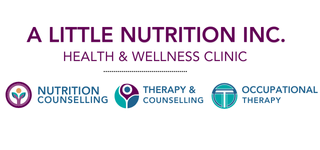Are you feeling frustrated with uncomfortable digestive symptoms? Does bloating, gas, reflux, diarrhea, or constipation disrupt your day? Are you feeling like you have tried everything to manage your symptoms but still have no relief? Digestive health is very individualized. There is no ‘one size fits all’ nutritional recommendations. A Registered Dietitian can provide you with personalized help. Which will help you better understand your condition and find ways to manage your symptoms for long-term relief.
What are the symptoms of poor gut health?
Most people are uncomfortable talking about it, but having gastrointestinal problems is more common than you think. Digestive system conditions can range from constipation and diarrhea to more serious conditions like Crohn’s Disease. Different types of digestive conditions have different symptoms. Symptoms can vary quite a bit and can be quite confusing to manage on your own. Unless these conditions are controlled, they can cause long-term discomfort or other health problems.
Signs and Symptoms of poor gut health
Signs and symptoms of digestive conditions can be different for every individual. Symptoms may include stomach discomfort/pain, gas, diarrhea, constipation, heartburn, and reflux. These symptoms can be very mild or very severe. It is very important to keep track of your symptoms so that your healthcare provider can provide the best treatment plan for you.

How to Treat Digestive health Conditions
Many digestive health conditions can be managed through dietary changes. Symptoms can often be related to specific foods or nutrients. Keeping a food and symptom journal can help you determine which foods may be causing symptoms and making you feel unwell. People with more severe symptoms or conditions may require surgery as part of their treatment plan. Or may be prescribed medications to help with the management of symptoms.
Managing your Diagnosis
Stress can often aggravate symptoms of digestive health conditions. If you are feeling overwhelmed, it may be beneficial to receive counseling along with nutritional guidance. This will help you better manage stress. Your Registered Dietitian can provide you with the education and support you need to help navigate dietary changes.

When should you Consider Meeting with a Registered Dietitian?
Registered Dietitians can provide you with the support needed to manage your digestive health journey. As well as understand what dietary approaches can be the most beneficial for managing symptoms. And the long-term health of your digestive tract. During your initial appointment, your registered dietitian will review your food symptom journal. With this information, your dietitian will help you determine which dietary interventions will be best for to reducing your symptoms.
During your initial assessment you may discuss:
- Taking the focus back to what you CAN eat to support your digestive system. And not dwelling on what you feel you can’t eat.
- The types and amount of fibre to include in your meals. Plus which food sources of fibre are best for you.
- Whether exploring a low FODMAP diet is beneficial for your condition.
- Whether further tests or investigations are required to diagnose any potential underlying health conditions (if there is no formal diagnosis already).
- The brain-gut connection.
- If probiotics and/or fibre supplementation may be beneficial for your condition and symptoms.
- If enlisting the help of other health care practitioners is warranted based on your condition. For example, your Registered Dietitian may suggest connecting with a Therapist to manage anxiety or stress. Or with a pelvic floor Physiotherapist if muscular dysfunction is suspected.
What NOT to expect when meeting with your Registered Dietitian:
- Food intolerance testing, as these tests are not evidenced-based.
- Unnecessary supplement recommendations.
- A restrictive diet plan that takes the joy out of eating and can create unnecessary fear around food.
What your Dietitian Can Do for You
During your initial appointment, you will receive an 80-90 minute session with a knowledgeable Registered Dietitian that will help you feel supported and educated. Your Dietitian will:
- Clear up the confusion surrounding what, when and how much to eat to help you manage your condition.
- Help you build a nutrition plan or pattern of eating that makes you feel good inside and out.
- Reduce fear around the unknown, like foods that may trigger symptoms, and how to manage food anxiety.
- Assist you with meal planning to help you optimally manage your condition
- Advocate and/or communicate with your Primary Healthcare Team (Doctor or Specialist)
- Explain the basics of your health condition (myth bust, health/nutrition guidelines, etc.)
- Help you manage emotions related to making the changes required to improve your health and quality of life
- Empower you to manage your health by understanding how to grocery shop, read nutrition labels, and prepare meals that you enjoy
- Provide you with cooking tips, meal prep guidance, recipe modifications, and snack ideas
Benefits of Working with a Dietitian at A Little Nutrition
You will thrive when you start eating foods that help relieve the symptoms. A Little Nutrition is a safe place to receive non-judgemental health advice. Our Registered Dietitians provide a weight inclusive approach to care and will support you on your nutritional journey. Dietitians specializing in digestive health can help you manage your pain and help you find symptom relief for the following:
- Constipation
- Diarrhea
- IBS-c, IBS-d, IBS-mixed
- Lactose intolerance
- Gluten sensitivity
- FODMAP (elimination, trial and reintroduction)
- Crohn’s Disease
- Colitis
- Other bowel concerns/issues
- Celiac Disease
- Pancreatitis
- Acid reflux/GERD
- Gallbladder conditions
- Histamine intolerance
- Sulphite intolerance
- Nickel allergy
- Diverticular Disease
Nutritional Services Overview
How many visits are recommended to see changes in my health?
Short answer: Most of our clients report seeing markable changes in their health after 3 to 5 appointments spaced out over 3 to 6 months.
Long answer: However, it really depends on the number of health and lifestyle concerns that need to be addressed. Additional skills and education around meal planning, meal preparation and grocery shopping may require extra time in order to implement and develop strong habits. In addition, there may be emotional underpinnings that are discovered during your meeting with the registered dietitian that cause poor digestive health such as food anxiety, stress management and a restrictive mindset. These issues may need to be worked through as well. We also have counsellors and therapists who can help you work through the everyday challenges of stress management, anxiety, depression, grief and relationship struggles. Psychotherapy is a tool that creates success when it is combined with health behaviour changes.
Are my appointments covered by Manitoba Health or Extended Medical Health Insurance?
Manitoba health does not cover private Dietitian services. But, check your extended medical insurance, you may have coverage. If you are uncertain about your coverage, you can call our office 1-204-515-7466 and we can look into it for you. Also, we would be happy to directly bill your appointment and keep the out-of-pocket expense as low as possible.
How much do appointments cost?
- Initial appointments are 80-90 minutes in length and cost $190
- Follow-up appointments are 50-60 minutes in length and cost $135
How do I book an appointment with a Registered Dietitian?
- To book an appointment with one of our Registered Dietitians or therapists you can:
- Phone: 204-515-7466
- Email: admin@alittlenutrition.com
- Book online: https://alittlenutrition.janeapp.com







